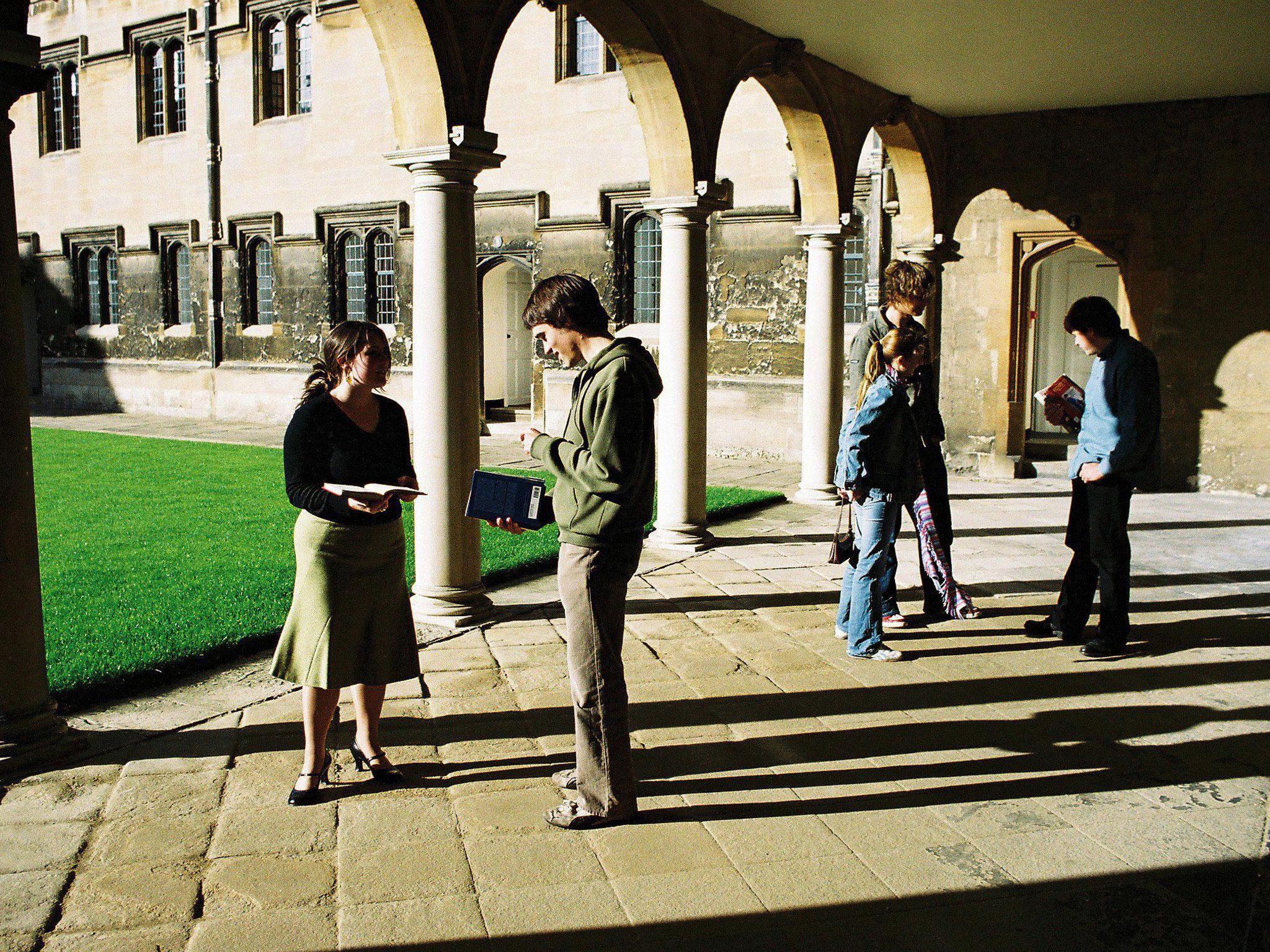Top universities warn ‘quality’ is at risk with more students
Russell Group comes out in strong opposition to the Chancellor's plans to raise student numbers by up to 60,000 per year

Your support helps us to tell the story
From reproductive rights to climate change to Big Tech, The Independent is on the ground when the story is developing. Whether it's investigating the financials of Elon Musk's pro-Trump PAC or producing our latest documentary, 'The A Word', which shines a light on the American women fighting for reproductive rights, we know how important it is to parse out the facts from the messaging.
At such a critical moment in US history, we need reporters on the ground. Your donation allows us to keep sending journalists to speak to both sides of the story.
The Independent is trusted by Americans across the entire political spectrum. And unlike many other quality news outlets, we choose not to lock Americans out of our reporting and analysis with paywalls. We believe quality journalism should be available to everyone, paid for by those who can afford it.
Your support makes all the difference.Britain’s top universities have dramatically opposed George Osborne’s plans to increase student numbers by lifting the cap on recruitment in 2015.
Wendy Piatt, director general of the Russell Group, which represents 24 of the UK’s most selective universities including Oxford and Cambridge, said that “quality higher education should be prioritised over quantity, especially in times of limited funding”.
She added that the elite group of institutions was “concerned” that the Government was choosing to plough more of taxpayers’ money into growing student numbers. The Russell Group’s comments are a major embarrassment for the Government, since it is highly respected by ministers and its support will be regarded as essential to expansion plans.
The Chancellor announced yesterday that 30,000 extra student places will be created next year, and the cap on student numbers which applies to all universities will be scrapped in 2015. The changes do not cover Wales, Scotland and Northern Ireland, whose assemblies and parliament will decide how to proceed.
But Dr Piatt also raised questions over the Government’s decision to fund the scheme by selling off student debts to private companies. “Time will only tell if this sale will fully meet the costs of this expansion,” she added. If not, it would shore up financial trouble for future governments, she said.
Although student leaders backed the expansion, they warned that “alarm bells” should ring over the Government’s plan to finance it by selling off debts. The expansion will be targeted at engineering, science, technology and maths courses – the so-called “STEM” subjects considered essential for the growth of the economy – but there is nothing to stop others increasing their intake.
As a first step, the Government will fund an extra 30,000 places next year. This will be followed by an extra £35m in 2015/16 and an extra £50m in each of the three following years. Outside the Russell Group, the expansion announcement was greeted with almost universal acclaim from the sector.
Mr Osborne said it would be financed by selling off more of the old student loan book to private companies. Part of it has already been sold to a debt management consortium for £160m, which has been attempting to recoup outstanding debts of £890m incurred between 1990 to 1998.
The Coalition last year announced universities could increase their intake provided they took in candidates with least two A grades and a B at A-level. This was expanded to students with an A and two Bs this year.
In his speech yesterday, Mr Osborne said that about 60,000 young people a year who had the grades to study missed out due to the “arbitrary cap” on numbers. “That makes no sense when we have a far lower proportion of people going to university than even the United States,” he added. “Access to higher education is a basic tenet of economic success.”
There are fears in the sector that if some universities successfully expanded, they could effectively steal places from newer institutions – forcing some to merge to survive.
Universities minister David Willetts said: “Removing the student numbers cap will free universities to recruit the students they want and give people far more choice over where to study.”
Join our commenting forum
Join thought-provoking conversations, follow other Independent readers and see their replies
Comments